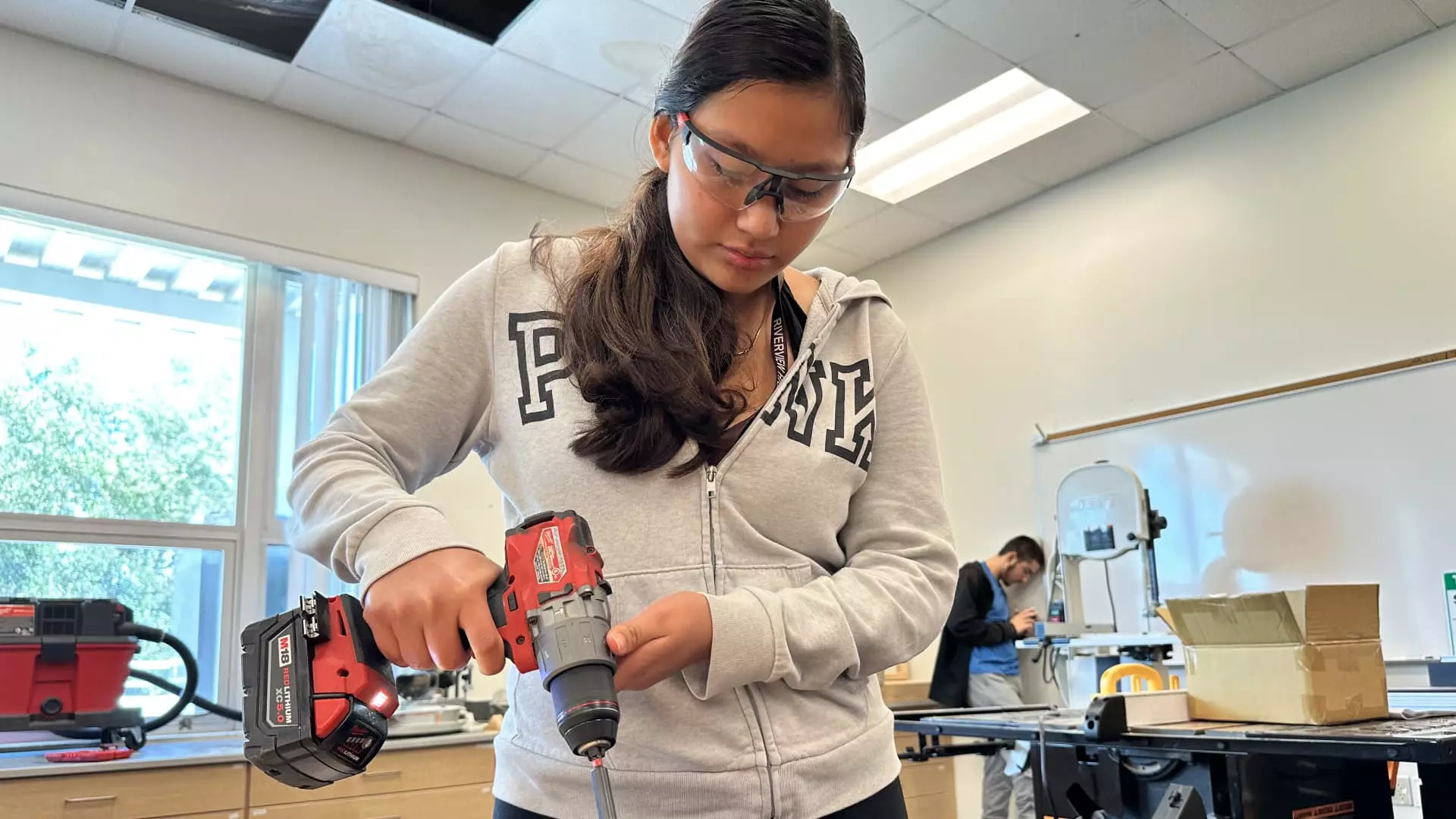In the rapidly changing landscape of education and career pathways, an increasing number of students are turning away from the traditional college route, opting instead for vocational training that promises immediate job opportunities and financial stability. This trend is exemplified by students like Angela Ramirez-Riojas, an 18-year-old with aspirations rooted in practical skills and hands-on experience. While college has always been a secondary consideration for her, the hands-on learning environment of vocational programs not only prepares students for rewarding careers but also challenges societal norms about educational achievement.
The perception that a four-year college degree is the ultimate benchmark of success has been steadfast for decades. However, in a world where student debt often outweighs the benefits of a traditional education, a reevaluation is necessary. Young adults are beginning to recognize that vocational training can lead to successful, fulfilling careers without the burdensome financial constraints associated with college tuition.
Riverview High School’s recently established construction academy stands as a testament to the shifting tides in educational philosophy. Designed to equip students with vital skills in construction and trades, this program meets a pressing need in local communities for trained labor. Principal Erin Haughey emphasizes that this initiative is not a last resort but rather a valuable option for motivated students seeking to carve out a niche in the labor market.
Indeed, the demand for skilled tradespeople is anticipated to grow. According to Associated Builders and Contractors, the construction industry alone needs over half a million additional workers to keep pace with its expanding demands. The academy’s innovative approach, combining technical education with practical application, enhances its students’ prospects. Classes that cover carpentry, plumbing, and electrical work provide a robust foundation, while specialized training opens pathways to further career opportunities in construction management and other fields related to the construction industry.
Recent data revealed by payroll-services provider ADP highlights that new hires in the construction sector earn competitive wages that often surpass those in traditional office jobs. As of late last year, the median salary for new construction hires reached $48,089, which was a significant 5.1% increase from the previous year. In comparison, new hires in the professional services sector earned notably less, indicating that the financial benefits of pursuing vocational training can be substantial.
This reality strikes a chord with many high school students who are reevaluating their future. A report from Junior Achievement and Citizens Bank indicates that around 49% of high schoolers now believe that alternative educational options, such as trade programs, can equip them just as effectively—if not more so—than a traditional college experience.
As societal views on education continue to evolve, Generation Z is emerging as the so-called “toolbelt generation.” This demographic is increasingly wary of the traditional route to success, recognizing the tangible benefits of vocational training. Certified financial planner Ted Jenkin highlights the importance of practical experience, stating that the gap between blue-collar and white-collar jobs, in terms of pay and respect, is narrowing.
The college affordability crisis has fueled this transformation, making vocational education not only a viable option but also a preferred pathway for many students. The 16% increase in vocational program enrollment between 2022 and 2023, reported by the National Student Clearinghouse, signifies that young adults are keenly aware of both their career aspirations and the realities of the job market.
As we navigate the complexities of the modern job market, it becomes crucial to foster an educational framework that supports varied choices for students. The traditional one-size-fits-all mentality towards education is increasingly being challenged and reshaped. Initiatives like the Riverview construction academy demonstrate the potential of specialized training programs to bridge the gap between education and meaningful employment.
As perceptions shift and educational landscapes transform, it is vital to encourage robust discussions about the value of vocational training. Investing in these programs not only addresses workforce shortages but also provides students like Angela Ramirez-Riojas with the skills needed to thrive, underscoring that success comes in many forms and does not necessarily require a four-year college degree. The rise of practical, skill-oriented education heralds a new era—one where diverse pathways are celebrated, and every student is empowered to follow their own route to success.

